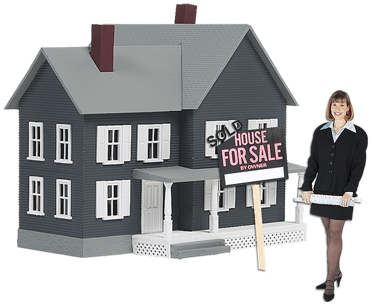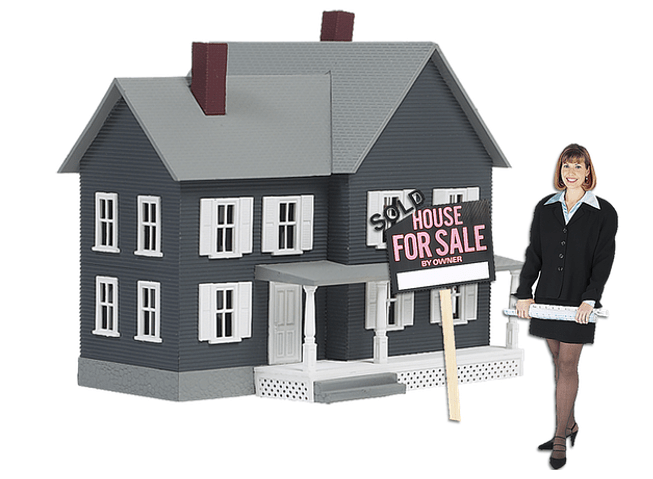Overview: Guide on Buying & Selling Investment Properties
In this article by AdvisoryHQ, we will teach you the ins and outs of buying an investment property and selling an investment property.
Whether you want to know how to start a real estate investment business or you want to learn how to buy investment property for personal use, this article can be a great guide to learn the basics.
We’ve gathered all kinds of investment property advice that can help with buying investment properties or putting up your investment property for sale. Buying and selling investment properties can be a tricky business.
This article aims to simplify the process and give you some great tips. For the best investment property advice, look no further!
Steps for Buying an Investment Property
The first step when learning how to buy an investment property is to do your homework. Before you even look for houses, when buying an investment property, there is some research that needs to be done.
The questions you will want to answer before buying investment properties will be these:
- What kind of property are you looking for when you buy investment property? House, apartment, condo, etc.?
- What area of town/neighborhood would you like to buy an investment property in?
- How much can you afford to invest when buying an investment property?
- How much will you be able to charge to rent out your investment property?
How much do you plan to make in return on your investment when buying an investment property?



Image Source: Pixabay
See Also: Vanguard vs. Fidelity | Detailed Comparison, Reviews, Competitors & Fees
These are all very important questions to consider when learning how to buy an investment property before you start searching for the perfect place. After you have answered these questions, you can move forward in the process of buying an investment property.
Make sure to discuss your financing options with your bank before buying an investment property to make sure you can really afford a certain price range. Next, you will get to start looking for the perfect investment property for sale.
Do some initial research online when buying investment properties using popular real estate sites such as Trulia.com, Zillow.com, and Realtor.com. Though this online search will be helpful, you will also want to find a local real estate agent in order to see the entire range of investment properties for sale in your desired area as well as all the accurate information on each.
Some real estate agents work with people buying investment properties more often. Finding an agent who specializes in buying investment properties may be helpful, because they already know how to buy an investment property and what makes a good investment property.
The next step in the process of how to buy an investment property is exactly like buying any property. You will make an offer on the property and your real estate agent will help you go through the many steps of officially buying an investment property.
The last step of buying an investment property will be learning how to be a landlord. There is ample investment property advice out there to help you become the best landlord possible for your tenants. You want to make the most money with the least amount of stress when buying an investment property.
All-in-One Change Management Tools
Top Rated Toolkit for Change Managers.
Get Your Change Management Tool Today...
Features of Great Investment Properties for Sale
Going back to your initial search for buying an investment property, there are some key features you will want to look for as well as answering the questions above to find the best investment property for sale.
According to Investopedia.com there are some key features to look for in an investment property for sale. These features will help you learn how to buy an investment property and make the most return from your investment.
The first thing to consider, as mentioned above, is the neighborhood where you want to buy an investment property.
Don’t Miss: Best 5 Real Estate Seminars for Investors & Consumers – This Year’s Guide
Along with the neighborhood, you will also want to consider the schools and crime rates in the area when buying investment properties if you want your investment property to be rentable to families.
When considering these features, also look at the number of listings/vacancies in the area when buying an investment property. If there are a high number of vacancies in the area, there may be something in the area that is undesirable—or very desirable—just depending. Make sure to do your area research when learning how to buy an investment property.
Other important features to consider are property taxes in the area where you buy an investment property as well as neighborhood amenities such as parks, community pool, etc. These will help determine the price of the rent you should charge when buying investment properties.
Lastly, consider the job market and growth of the area in which you want to buy an investment property. Growing areas with ample job opportunities and development will attract potential tenants or buyers should you want to put up your investment property for sale in the future.
Investment Property Advice: Selling Investment Property



Image Source: BigStock
The biggest concern when selling investment property is trying to figure out the best time to sell. When it comes to selling investment property, timing is everything. Auction.com offers some advice from a California realtor named Scott Mednick when it comes to learning whether holding onto or selling investment property is the best idea.
According to Mednick, it all comes down to area when putting up investment property for sale. Mednick says,
“For example, a $500,000 home in Orange County, Calif., may bring an investor $2,500 a month in rent, but in certain parts of the country, that same $500,000 may buy ten $50,000 homes that will rent out for a total of $7,000 a month. So in those areas, where appreciation is nowhere near as volatile as in California, it makes sense to buy and hold for the long term in order to maintain a continuous cash flow.”
People learning how to buy an investment property also need to learn about selling investment property. It is important to study the market in order to know where and when to buy an investment property, how long to hold onto the property, and when to sell.
As well as studying the market, it is important to know that after buying an investment property, you will be eligible for a depreciation tax deduction on the property. However, this deduction is used up after a certain number of years. Once this deduction is used up, putting up your investment property for sale and buying investment properties nearby and/or elsewhere is a good idea.
According to VonCannonRealEstate.com, on average, once you hit the twelfth year after buying an investment property, it is time to consider selling. This is only an average, but the two main factors when selling investment property involved equity in the house when selling investment property and if the current market will make it easy to put up your investment property for sale and make a profit.
Related: How to Become a Real Estate Investor (Real Estate Investing 101)



The Down Side to Selling Investment Property
Brandon Duncan wrote an article on LinkedIn called, “Why Selling Investment Properties is a Bad Idea.” In this article, Duncan gives some good insights into the unexpected costs of buying and selling investment property.
Though you may see another investment property for sale that could bring in an extra $500 a month in rent than the property you currently own, sometimes selling investment property is not a smart choice.
Some of the fees and taxes Duncan mentions in his article include:
- The cost of commission when selling investment property or trying to buy an investment property is around 6% each for both agents involved.
- Federal Income Tax or Capital Gains tax on buying an investment property after selling investment property can be between 20% and 39.6%, depending on the holding period.
- There is a 3.8% Medicare tax put in place on your gain when buying an investment property after selling investment property.
- Varying escrow fees are involved when selling investment property that the seller should be aware of before putting up their investment property for sale.
- You will have to expect to lose the incoming rental money in the meantime while selling an investment property and trying to buy an investment property.
Even if you do not plan on selling investment property in order to buy an investment property, Duncan explains that many of these costs still occur, because you are gaining profit by selling investment property at all.
It is important to do the math and include all these fees and taxes in order to understand what your actual profit will be from selling investment property. Otherwise, you may end up very disappointed that you put up your investment property up for sale.
Duncan explains that his strategy is to buy an investment property and never sell. This is a controversial opinion; however, it is important to get all the knowledge possible when buying an investment property, as well as being cautious and aware of the costs when selling investment property.
Popular Article: How to Invest in Commercial Real Estate | Investment for Beginners & Investors
The Lowdown on Buying and Selling Investment Properties
The real estate investment business is a complicated one. Both buying investment properties and selling investment properties are very risky endeavors. However, as long as you do ample research on both your own finances and the area in which you want to buy an investment property, buying investment properties can be a very profitable move.
When learning how to buy an investment property, make sure you consider not only the real estate market in the area but also the many features that will be attractive in that area to families or other desirable renters. Some of these features include area growth, crime rates, schools in the area, and amenities such as pools and parks nearby.
Also, when buying an investment property, make sure you stay within a price range that you can afford. Otherwise, you will find that your profit from buying an investment property is minimal.
When selling investment properties, understand when the perfect time to sell is — if that perfect time ever arises. Sometimes, holding onto an investment property is the best option. Get in touch with a realtor or investment professional who can give you specific advice for your situation when selling investment properties and deciding whether to put up your investment property for sale.
With the right guidance and in-depth research, buying and selling investment properties can be less stressful. However, buying investment properties and selling investment properties is definitely a complex business, so we would recommend talking to an expert.
Hopefully, this article pushes you in the right direction and gives some helpful advice, whether you plan on buying an investment property or are in the process of selling investment properties. From the Advisory HQ team to you, we wish you the best of luck in your investments!
Read More: Want To Buy a House With Cash? – Get All the Facts! (Save Money, Cash Process & Review)
AdvisoryHQ (AHQ) Disclaimer:
Reasonable efforts have been made by AdvisoryHQ to present accurate information, however all info is presented without warranty. Review AdvisoryHQ’s Terms for details. Also review each firm’s site for the most updated data, rates and info.
Note: Firms and products, including the one(s) reviewed above, may be AdvisoryHQ's affiliates. Click to view AdvisoryHQ's advertiser disclosures.





